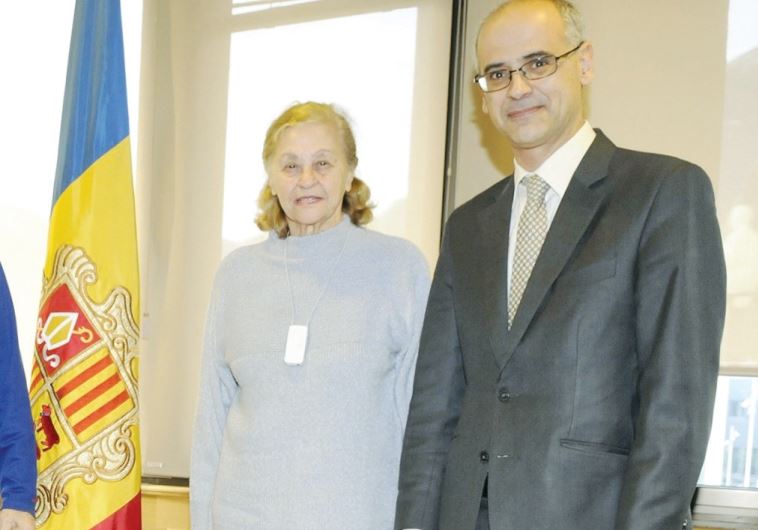Carla
The quaint principality of Andorra is a tiny buffer between France and Spain – and was once part of an escape route for those running from the Nazis.
 Andorran Head of State Antoni Marti-Petit meets with Kimhi in December 2014(photo credit: CARLA KIMHI)
Andorran Head of State Antoni Marti-Petit meets with Kimhi in December 2014(photo credit: CARLA KIMHI)